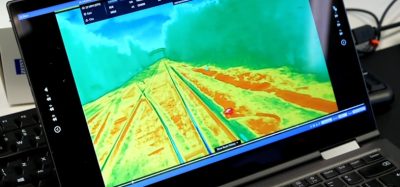Matterhorn Gotthard Bahn monitors railway network with KEYMILE technology
Posted: 9 April 2010 | | No comments yet
Matterhorn Gotthard Bahn has chosen a KEYMILE solution to control and monitor radio and data connections between the signal boxes in its railway network.
Matterhorn Gotthard Bahn has chosen a KEYMILE solution to control and monitor radio and data connections between the signal boxes in its railway network.
Matterhorn Gotthard Bahn has chosen a KEYMILE solution to control and monitor radio and data connections between the signal boxes in its railway network. A key proviso was that the products used had to comply with all the stringent safety requirements established by the Swiss Office of Transport.
Because Matterhorn Gotthard Bahn has constantly enhanced its operations, the last few years have seen a steady rise in demand for automation and consequently remote control of signal boxes. As a result, products are required to comply with all the regulations stipulated by the regulatory authority – which in Switzerland’s case is the Federal Office of Transport or FOT. So for its complex telephony, radio and data connections, Matterhorn Gotthard Bahn uses the UMUX platform made by KEYMILE, one of the leading manufacturers of Next Generation data transmission systems. UMUX is a multi-service access system that provides comprehensive data services. A central network management system actively monitors all UMUX systems used. As a result, any malfunction can be quickly localised. If additional support is required, the KEYMILE support can use remote support access to the local network management system.
At the end of 2008, planning commenced to provide fibre optic links between the signal boxes and the appropriate integrated control and information system (ILTIS) managed by UMUX. ILTIS R40, the current release, is based solely on IP connections: each signal box is connected with two 4 Mbps point-to-point Ethernet lines each and the paths are protected by a redundant path. Should a malfunction occur, for example because the fibre optics rupture, a switch is made to the second path in milliseconds. European standard EN 50159-1 directives stipulating a closed data transmission network for these types of connections must be adhered to. In this case, an essential consideration is a lack of interference. It must be shown that adjacent data lines do not have any impact on the ILTIS connections.
KEYMILE operates this application with proven, robust SDH technology (Synchronous Digital Hierarchy). Via a circuit-switched leased line, the paths are implemented with two 2 Mbps (two VC-12s per connection). In addition to the SDH interfaces, the board used also has four Ethernet ports (10/100/1000BaseT) that are switched using Ethernet-over-SDH technology to SDH. Therefore, neither routers nor switches are present on the connections (which in some cases are over 100 km long) and the requirements for lack of interference are fulfilled entirely.
An additional challenge this network faced, was the restricted space for fibre optics in the Furka tunnel. For the main path and the second path, only one fibre optic each was available. Another difficulty was that a single section of track is over 40 km long. To bridge this section, STM-4 data transmission with powerful Small Factor Pluggable (SFP) modules was implemented that enables sending and receiving via a single fibre optic line.
At the end of last year, the new solution was commissioned for controlling radio and data connections between the signal boxes. It has been working perfectly since that time. Matterhorn Gotthard Bahn is convinced it has made a wise long-term investment. In the next few years, the railway company will continually convert to more remote-controlled signal boxes. As a result, more stations can be integrated with little outlay.
Global Railway Review Autumn/ Winter Issue 2025
Welcome to 2025’s Autumn/ Winter issue of Global Railway Review!
The dynamism of our sector has never been more apparent, driven by technological leaps, evolving societal demands, and an urgent global imperative for sustainable solutions.
>>> Read the issue in full now! <<<







